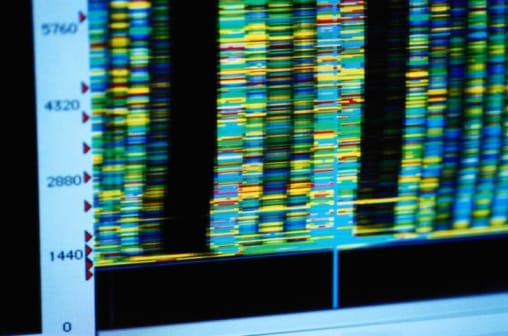14 april 2023 – 23:02
Found abnormalities increase the chance of effective treatment
People with Lynch syndrome have an increased risk of developing colorectal and uterine cancer, but other forms are also more common. Research by Radboud university medical center shows that many of these and other types of tumors contain specific abnormalities in the DNA. This makes them susceptible to immunotherapy treatment.
People with Lynch syndrome are genetically predisposed to cancer. Usually it concerns colorectal and uterine cancer, but other tumors are also more common in this hereditary condition. An estimated forty to fifty thousand Dutch people have Lynch syndrome.
Due to specific abnormalities in the DNA of colon and uterine tumors in patients with Lynch syndrome, these cancers are very sensitive to immunotherapy. But what about other cancers? Researchers from the Genetics and Pathology departments of Radboud university medical center have mapped out how often tumors occur outside the large intestine or uterus in people with Lynch syndrome. They also looked for the specific DNA abnormalities in these types of cancer.
Much more common DNA abnormalities
The study was conducted in a group of over 1700 people with Lynch syndrome. Of these, more than a third developed colorectal or uterine cancer. About fifteen percent developed another form of cancer. Many of these types have previously been associated with Lynch syndrome, such as cancer of the small intestine, stomach and ureter. These are called Lynch spectrum tumors. This does not apply to a rare form of breast cancer, the medullary type, but the research now shows that these tumors are also more common in people with Lynch syndrome.
The researchers found the specific DNA abnormalities in virtually all Lynch spectrum tumours. Almost forty percent of the tumors outside the Lynch spectrum also had these abnormalities. For the medullary form of breast cancer, this was even the case in 75 percent. ‘That is a remarkable number,’ says researcher Richarda de Voer. ‘In cancer patients without Lynch syndrome, we find these abnormalities in less than one percent of the tumours.’
Immunotherapy effective
What does this mean for the patient now? Lead researcher Marjolijn Ligtenberg says: ‘In people with Lynch syndrome who develop cancer outside the colon or uterus, it is desirable to examine the tumor for these DNA abnormalities. If we find it, there is a very good chance that immunotherapy will be effective.’
This treatment has not yet been registered for these forms of cancer, but Ligtenberg explains that there are still possibilities: ‘In the Netherlands, a study is underway in which we can use this type of treatment for all forms of cancer with these specific DNA abnormalities. Moreover, an agreement has been made with the health insurers: If the therapy works, they will reimburse it.’
Over de publicatie in the Journal of the National Cancer Institute: Microsatellite instability in non-colorectal and non-endometrial malignancies in patients with Lynch syndrome. L. Elze, RS van der Post, JR Vos, AR Mensenkamp, MSC de Hullu. ID Nagtegaal, N. Hoogerbrugge, RM de Voer, MJL Ligtenberg. DOI: 10.1093/jnci/djad063.
Source: Radboudumc

